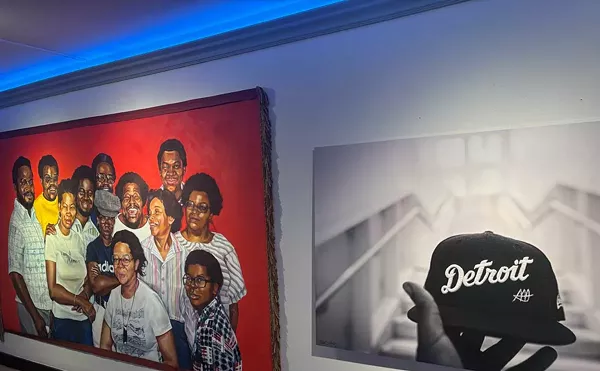
Audio By Carbonatix
[
{
"name": "GPT - Leaderboard - Inline - Content",
"component": "35519556",
"insertPoint": "5th",
"startingPoint": "3",
"requiredCountToDisplay": "3",
"maxInsertions": 100,
"adList": [
{
"adPreset": "LeaderboardInline"
}
]
}
]
By tackling a hot-button issue in a calm and deliberate manner, director Daniel Karslake defuses the heated rhetoric surrounding homosexuality and Christianity, and allows the voices of reason to quietly, powerfully speak out. For the Bible Tells Me So is unabashedly activist filmmaking, but Karslake believes in confronting hostility with dignity, and using education to counter irrational fears. His goal is nothing less than to bring everyone into the light.
Creating a film about faith that asks audiences to think as much as believe is a tricky balancing act in these polarized times. Karslake consults theologians (including Archbishop Desmond Tutu) who challenge the literalist interpretation of the Bible, and question the way this revered text has been used to justify oppression. Their pragmatic arguments deftly counterbalance the fundamentalist assertions of politically and socially conservative Christians who have made defining marriage as strictly heterosexual a major get-out-the-vote issue.
As much as Karslake aims for the head, he gets to the heart of the matter by focusing on the family. Bible gets personal by profiling deeply religious families who have produced a gay son or lesbian daughter, and how they have been changed by the experience. In a film that preaches tolerance, acceptance is the ultimate goal, and each family has a different path there.
The most striking story is that of Gene Robinson, the openly gay Episcopalian bishop of New Hampshire. In forthright interviews with Robinson, his elderly parents and ex-wife, Karslake humanizes the man who has become the symbol of the schism within a church. His congregants chose to view homosexuality not as an abstract abomination, but as part of the character of their spiritual leader.
A refreshing candor also distinguishes the interviews with Chrissy Gephardt, who was raised Catholic and came out publicly when her father, former House Majority Leader Dick Gephardt, entered the Democratic presidential race in 2004. How families cope with public perception is a recurring theme, and these high-profile cases (along with Lutheran activist Jake Reitan and his parents) show just how quickly the personal and political become intertwined.
In a brief, fast-paced documentary, Karslake attempts to cover a great deal of ground, and only briefly touches upon the harsh consequences of institutionalized homophobia. But he really stumbles with "Is It a Choice?" This flippant animated short, detailing scientific studies of homosexuality (a subject that's never discussed otherwise), is jarringly out-of-place amid all the level-headed interviewees.
As much as this film wants to serve as a shining example of how Christians can rethink their beliefs about homosexuality, Karslake acknowledges that actions don't always meet up with idealism. Even though her parents, both Southern preachers, express unconditional love for the soft-spoken Tania Poteat, neither can fully acknowledge her.
Jimmy Swaggart ripples with revulsion during his sermons on homosexuality, but the Poteats' carefully drawn emotional barrier succinctly expresses a common parental coping mechanism. They're proof that even with the best of intentions, reconciliation comes by degrees.
Showing at the Detroit Film Theatre (inside the DIA, 5200 Woodward Ave., Detroit) at 7:30 pm, Thursday, Jan. 17, and 9:30 p.m., Friday and Saturday, Jan. 18-19. Call 313-833-3237.





